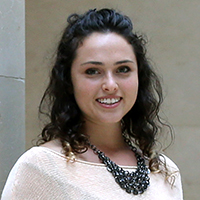View this article in another language
- 한국어
- English
- 日本語
- 中文
- العربية
- Español
- Français
- Deutsch
- Pусский
- Tiếng Việt
- Indonesian

Attainment should be effortless. This idea has haunted Western thought for ages. In the sixteenth century, the Italian author Baldassare Castiglione coined a word for it: sprezzatura. In "The Book of the Courtier" (1528), he used sprezzatura to characterize the consummate courtier: a Renaissance man who was able to make the difficult look easy. The word eventually made it into the dictionary, which defines it as “graceful conduct or performance without apparent effort.”
While the term has fallen out of favor -- reportedly its popularity now ranks in the bottom 30 percent of all words -- its opposite has entered U.S. vernacular as an insult: the try-hard, someone who is uncool as a result of their obvious efforts. Though it has been centuries since Castiglione wrote about his perfect courtier, the West is still enthralled by the notion of painless accomplishment.
Korea, on the other hand, admires effort. In Korea, rather than saying “good job” after you work with someone, you say Sugo-haesseoyo (수고했어요). The translation is something like “You worked hard and suffered.” Though at first I found this strange, the more I considered it, the more freeing it became.
I have never been good at anything without trying, but surrounded by a culture that worshipped natural talent, I found myself seeking to mask my effort. In grade school, I remember purposely shrinking my handwriting so I would take fewer pages of notes, and fighting the urge to lie about how many hours I spent studying. I knew that my conscientiousness made me a try-hard, and I wanted to cover it up. Meanwhile, in Korea, students use the saying “I studied till my nose bled” (코피가 날 정도로 열심히 공부했어) to tell each other just how much they worked. Unlike in the West, effort at school is an expected component of success in Korea.
The difference in attitudes about trying extends beyond schoolwork, into the realm of appearance. Image matters both in the West and in South Korea. However, visibly focusing on appearance is frowned upon in the West. Of course, people still strive to look good, but the beauty process is meant to be hidden. It is considered ill-mannered or vain to do makeup, look in the mirror, or primp in public. Screening such processes from the public eye enables the fiction of effortless beauty.
In Korea, however, investment in image is not closeted. There are full-length mirrors in metro stations, acknowledging that travelers may want to check their appearance before reaching their destination, and people use these mirrors without apparent embarrassment. There are even small mirrors at face height in toilet stalls. Though initially I found the placement odd, I came to appreciate its efficiency. Presumably, the mirrors save users time, allowing them to check their faces while taking care of business. To me, it was a nod from Korean society, acknowledging the primacy placed on good looks, and the effort required to maintain them.
This is not to downplay problems bred by intense societal focus on academic and beauty standards. Students in South Korea commonly spend 14 hours a day on schoolwork. This intensity is cited by news outlets to explain the rate of teen suicide in South Korea, which is rising, according to the OECD. Korea’s focus on beauty has permeated the job market, such that attractiveness is considered part of being a competitive applicant. In 2015, the Ministry of Employment and Labor even tweeted a report insinuating that job applicants could get plastic surgery to increase their appeal to employers. Though the tweet was quickly deleted, its brief existence highlights the nefarious side to the societal acceptance of the emphasis on looking good.
Such focus on image clearly has negative ramifications, but, as an outsider, I found the frankness with which Koreans acknowledged it to be quite liberating. I was raised to be fiercely accepting of my appearance, but the message I received implicitly from billboards and movies was that women should look flawless. The result of absorbing such conflicting dictums was shame. I wanted to be thinner and prettier, but I could not admit it. As a teen, I recall lying about my sweet tooth, insisting I did not like desserts because I was embarrassed to admit that I abstained for my figure. However, enabled by my Korean friends’ open recognition of the pressure to look perfect, in Seoul I found it easier to be honest with myself and others.
In the U.S., I was accustomed to a culture of dissembling, where academic achievement and beauty were important, but where letting other people see exertion in pursuit of these goals was uncouth. However, Korea removed the need to conceal my effort, freeing me to admit that I try and that, in fact, I try hard.
Amarynth Sichel is currently a Gates Scholar at Cambridge University. Previously, she spent two years in Korea, working for Seoul Metropolitan Government, freelancing as an executive coach, and studying Korean.